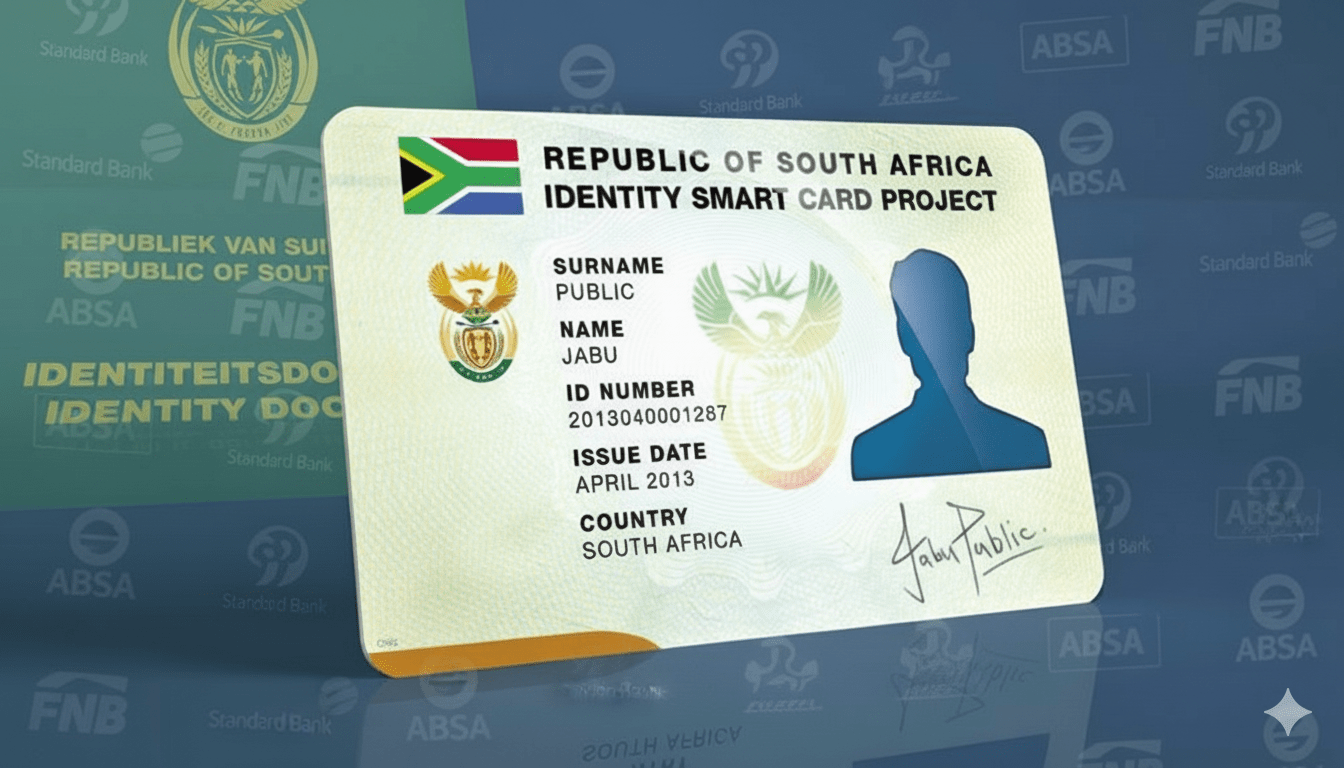South Africans can now look forward to significantly easier access to essential government services. The network of Smart ID and passport bank branches is set for a major expansion. Currently, only 30 bank branches nationwide facilitate these applications. However, this number will grow substantially by March 2026, thanks to new digital partnerships.
The Department of Home Affairs has embarked on a crucial new model. This initiative promises to enhance service delivery across the country. It aims to bring convenience closer to citizens.
A New Era for Smart ID and Passport Bank Branches
The eHomeAffairs programme began piloting these services in bank branches back in 2016. For years, the rollout remained limited to just 30 branches. This slow expansion was due to an expensive and unreliable previous model. It required Home Affairs to supply its own staff and systems within bank branches.
Home Affairs Minister Leon Schreiber announced a game-changing shift. The new partnership model is essential for wider access. It will leverage banks’ existing employees and robust systems. This change is expected to increase coverage fivefold. By March 2026, South Africans can anticipate at least 153 more bank branches offering these vital services. This expansion will reach both urban and rural areas.
Banks Leading the Digital Transformation
Several prominent banks have joined this innovative digital partnership. These include Absa, African Bank, Capitec, Discovery Bank, FNB, Nedbank, Standard Bank, and TymeBank. Each institution has outlined ambitious plans to expand its service points.
Capitec Bank’s Ambitious Rollout
Capitec, South Africa’s largest bank by customer numbers, is set for a significant expansion. They plan to launch smart ID and passport services at their first 10 branches in October 2025. Following this, Capitec aims to offer these services at 100 branches within the first few months of 2026. Their long-term goal is to support 250 to 300 branches. This will greatly improve accessibility for their vast customer base.
Standard Bank’s Continued Leadership
Standard Bank holds the title of the country’s largest bank by assets. It was also the biggest participant in the pilot project. The bank plans to expand services to 20 more branches by March 2026. This adds to their current nine operational branches. Testing of their first new branches will begin in October 2025. Standard Bank aims for an impressive expansion to between 200 and 300 branches next year. This demonstrates a strong commitment to the initiative.
FNB’s Proven Track Record and Future Plans
FNB has already issued the most smart ID cards and passports under the eHomeAffairs pilot project. They plan to add 15 more branches by March 2026. This will bring their total to 22 branches. FNB intends to further expand these services to 240 branches by July 2026. Their consistent performance highlights the success of bank-based applications.

Absa and Nedbank’s Strategic Expansion
Absa will significantly boost its network. A spokesperson confirmed plans to increase branches offering smart ID and passport applications to 19. This is a substantial jump from their current six locations. Nedbank, currently operating six Home Affairs-supported branches, will use these to test and refine their systems. They plan to scale the service to 20 additional branches by August 2026. Further expansion to other geographical areas will follow as needed.
New Entrants and Digital-First Approaches
African Bank is a new participant in the programme. They plan to roll out services at five branches starting March 2026. Their commitment includes a total of 100 more branches during their partnership with Home Affairs. Discovery Bank, a solely digital bank, has also signed up. While they lack physical branches, they will offer the service at four more offices. These are in addition to their existing offices in Sandton. The exact timeline for Discovery Bank’s expansion remains unclear.
Investec was the last bank to join the original eHomeAffairs pilot. However, they have not yet confirmed whether they will expand their offering to more branches.
Current Smart ID and Passport Service Points
As of now, 30 bank branches across South Africa provide smart ID and passport application services. These branches represent the initial phase of the eHomeAffairs programme. They have laid the groundwork for the upcoming widespread expansion.
- **Standard Bank** leads with 9 branches currently. These include locations like Canal Walk, Centurion, and Simmonds Street.
- **FNB** operates 7 branches, such as Burgersfort, Cornubia, and Merchant Place.
- **Nedbank** has 6 active branches. These are found in areas like Arcadia, Constantia Kloof, and Rivonia.
- **Absa** also offers services at 6 branches, including Centurion Lifestyle Centre, Sandton City, and Towers.
- **Discovery Bank** has one office in Sandton.
- **Investec** also has one branch in Sandown.
This network has been crucial for many citizens. It offers an alternative to busy Home Affairs offices. Ensuring smooth and secure transactions is paramount. For information on protecting your finances, consider reading our article on Spotting AI Bank Scams: Protect Your Money Now.
The Impact of Expanded Access
The expansion of Smart ID and passport bank branches represents a significant step forward for public service delivery in South Africa. It addresses the historical challenges of long queues and limited access. By integrating these services into bank branches, the Department of Home Affairs is making essential documents more accessible. This move saves citizens time and effort. It also enhances the overall efficiency of the application process.
The new model’s reliance on banks’ existing infrastructure and staff is a cost-effective solution. This innovative approach ensures sustainability and broader reach. It empowers banks to play a more integral role in civic services. This collaboration between government and the private sector is a positive development. It sets a precedent for future partnerships aimed at improving citizen convenience.

Looking Ahead: A More Convenient Future
The commitment from banks like Capitec, Standard Bank, and FNB signals a robust future for these services. Their planned expansions by March 2026 and beyond will transform how South Africans apply for their Smart IDs and passports. The shift towards digital partnerships and leveraging existing infrastructure is a smart move. It promises to deliver a more efficient and user-friendly experience for millions of people.
This initiative not only expands physical access but also promotes digital inclusion. Citizens can utilize familiar banking environments for government services. This integration makes the process less daunting. The ongoing rollout will be closely watched. It is expected to set new standards for public service accessibility in South Africa. This collaborative effort underscores a commitment to modernization and citizen-centric service delivery.

